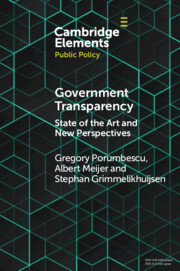Open government and open data are often presented as the Asterix and Obelix of modern government—one cannot discuss one, without involving the other. Modern government, in this narrative, should open itself up, be more transparent, and allow the governed to have a say in their governance. The usage of technologies, and especially the communication of governmental data, is then thought to be one of the crucial instruments helping governments achieving these goals. Much open government data research, hence, focuses on the publication of open government data, their reuse, and re-users. Recent research trends, by contrast, divert from this focus on data and emphasize the importance of studying open government data in practice, in interaction with practitioners, while simultaneously paying attention to their political character. This commentary looks more closely at the implications of emphasizing the practical and political dimensions of open government data. It argues that researchers should explicate how and in what way open government data policies present solutions to what kind of problems. Such explications should be based on a detailed empirical analysis of how different actors do or do not do open data. The key question to be continuously asked and answered when studying and implementing open government data is how the solutions openness present latch onto the problem they aim to solve.
